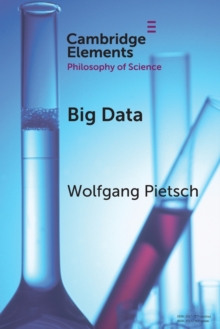Description
| Product ID: | 9781108706698 |
| Product Form: | Paperback / softback |
| Country of Manufacture: | GB |
| Series: | Elements in the Philosophy of Science |
| Title: | Big Data |
| Authors: | Author: Wolfgang Pietsch |
| Page Count: | 75 |
| Subjects: | Data science and analysis: general, Data analysis: general, Philosophy of science, History of science, Machine learning, Philosophy of science, History of science, Machine learning |
| Description: | Select Guide Rating Big Data and methods for analyzing large data sets such as machine learning have deeply transformed scientific practice in many fields. This Element defends an inductivist view of big data research and argues that the type of induction employed by the most successful big data algorithms is variational induction in the tradition of Mill's methods. Big Data and methods for analyzing large data sets such as machine learning have in recent times deeply transformed scientific practice in many fields. However, an epistemological study of these novel tools is still largely lacking. After a conceptual analysis of the notion of data and a brief introduction into the methodological dichotomy between inductivism and hypothetico-deductivism, several controversial theses regarding big data approaches are discussed. These include, whether correlation replaces causation, whether the end of theory is in sight and whether big data approaches constitute entirely novel scientific methodology. In this Element, I defend an inductivist view of big data research and argue that the type of induction employed by the most successful big data algorithms is variational induction in the tradition of Mill''s methods. Based on this insight, the before-mentioned epistemological issues can be systematically addressed. |
| Imprint Name: | Cambridge University Press |
| Publisher Name: | Cambridge University Press |
| Country of Publication: | GB |
| Publishing Date: | 2021-02-18 |


